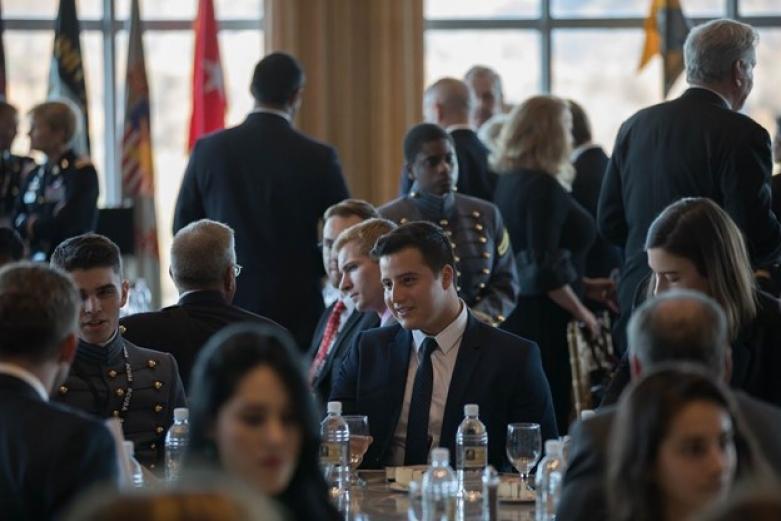The Department of Social Sciences at the United States Military Academy fosters meaningful engagement between cadets and leading voices in national and global affairs through a vibrant network of programs and partnerships. Signature initiatives such as the annual Student Conference on U.S. Affairs (SCUSA) and the Class of 1952 Guest Lecture Program bring together scholars, policymakers, and distinguished leaders to discuss pressing issues shaping America’s role in the world.
These experiences - supported by the department’s deep connections across government, academia, industry, and the military - immerse cadets in real-world policy challenges, enhance faculty scholarship, and strengthen West Point’s enduring commitment to developing leaders of character who serve with wisdom and purpose.

The Student Conference on U.S. Affairs is an annual four-day conference at USMA. It facilitates interaction and constructive discussion between civilian student delegates and West Point cadets in an effort to better understand the challenges the United States faces today.
SCUSA delegates attend panel discussions, hear from high-profile keynote speakers, and develop policy recommendations over the course of their four days at West Point. Roundtables, focusing on 15 contemporary regional and topical issues relating to democratization, put delegates at the forefront of national issues and expose them to complex problems facing leaders today.

The Class of 1952 Guest Lecture program funds a dynamic and diverse array of guest speakers to address SOSH cadets and faculty each year. On average, nearly 100 prominent academics, senior military officers, policy-makers, and distinguished leaders from the nonprofit and private sectors to enrich cadets’ educational experience:
Each spring, SOSH and the West Point Association of Graduates present the Class of 1952 Distinguished Guest Lecture, featuring a public figure whose work embodies the West Point values of “duty, honor, country.” Past speakers include Henry Kissinger, LTG(ret) Brent Scowcroft, Madeline Albright, Tom Brokaw, LTG(ret) H.R. McMaster, GEN(ret) Martin Dempsey, among others.
The Department of Social Sciences is embedded within a dense web of professional relationships that extend across government agencies, think tanks, military units, private industry, academia, and the media. The value of these relationships is found in three basic areas.
First, these relationships provide our cadets with first-rate opportunities to learn from professionals beyond West Point and deepen their understanding of the complexities of American and international politics and economics. Second, this network provides opportunities for our civilian and military faculty members to enhance their own professional development and advance their research projects. Finally, these relationships offer outlets for putting the intellectual capital of the department to use, as we seek ways to contribute expertise and talent to the disciplines of political science and economics, to the Army, and to national policymakers.
While the department’s network is thriving, we are always interested in exploring new partnerships that help us work toward the mission.